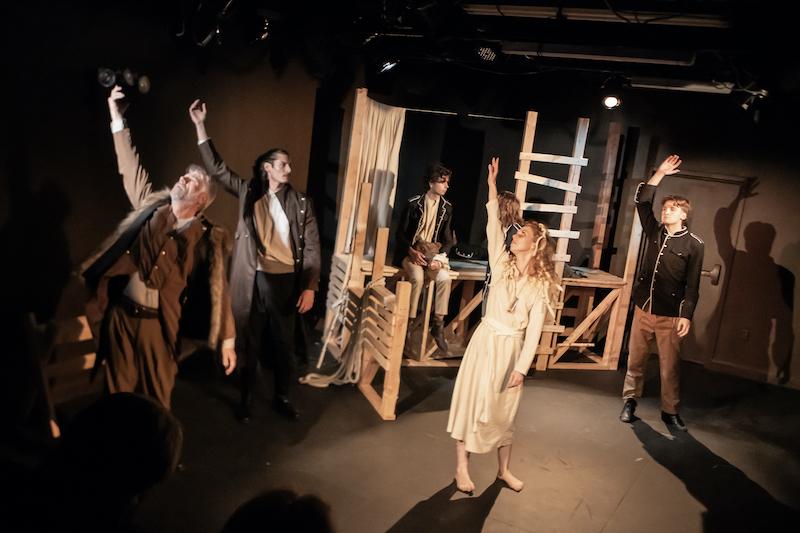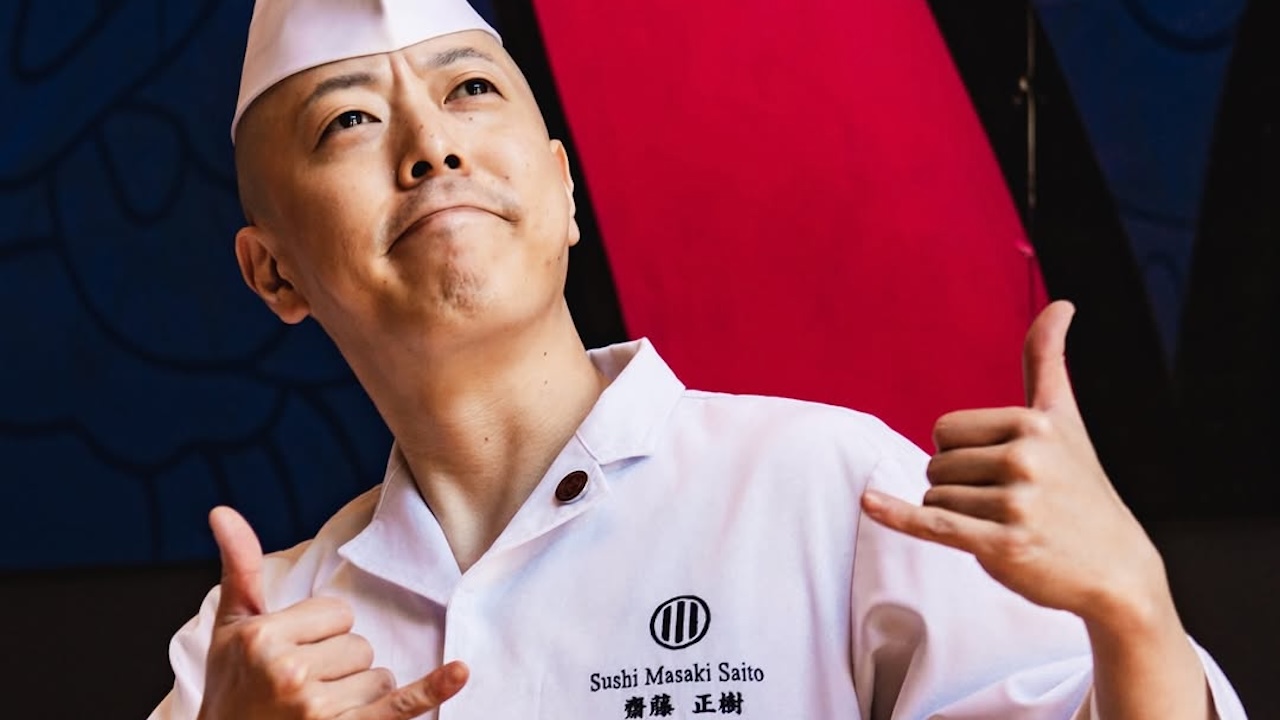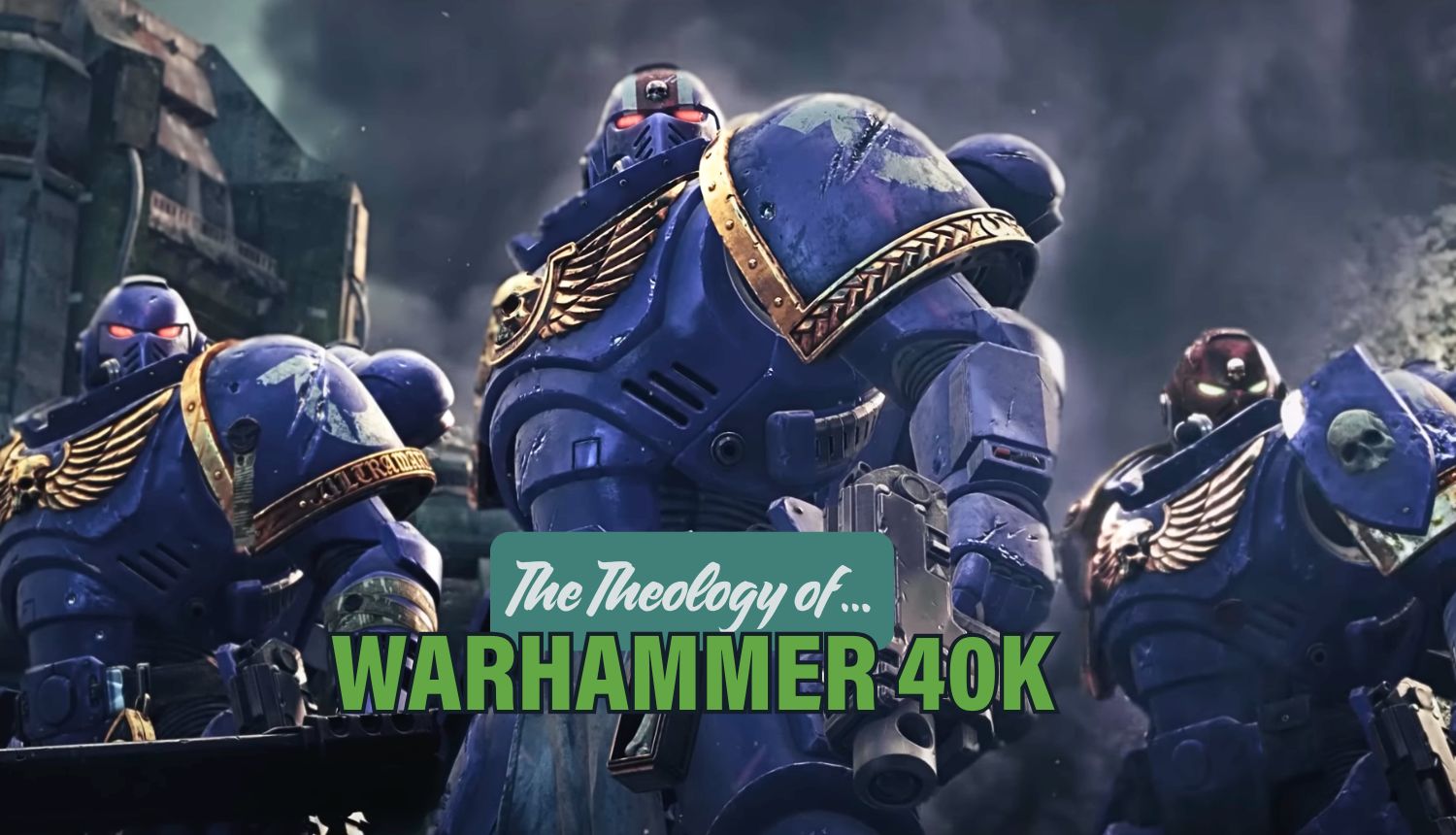With minimal décor and symbolism in every gesture, The Mutt — an adaptation of Dostoevsky’s The Brothers Karamazov at IATI Theater — blends experimental staging with unvarnished performances from its international cast, creating a work where nothing feels accidental.
Directed by Elena Che and Anoushka Nesterova, the play narrows the novel to a study of the soul’s uneasy passage into maturity — a stage where empathy matures beside cruelty, and good and evil are never far apart.
In Book Ten, Dostoevsky shifts attention from the Karamazov brothers to a group of schoolboys — Kolya Krasotkin, Ilyusha Snegirev, and their peers — suggesting that the next generation will inherit the same moral conflicts that consumed their parents.
It’s winter. Film projections of frozen villages, unchanged for centuries, evoke the stillness of a world where time has stopped. At the center is young Ilyusha (Jaden Cavalleri), dying from both physical illness and emotional wounds.
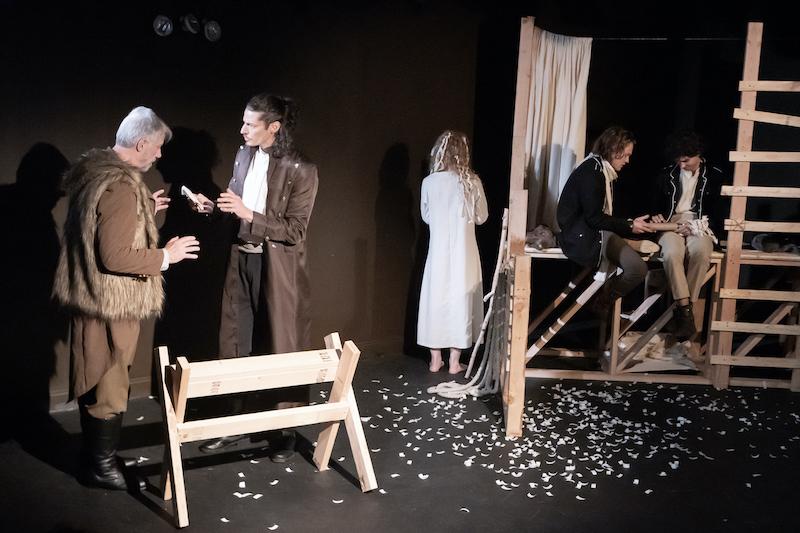
The Mutt, after Dostoevsky’s The Brothers Karamazov, directed by Elena Che and Anoushka Nesterova, at IATI Theater.
After witnessing his father, Captain Snegirev (Marcus Troy), publicly humiliated — and enduring the merciless mockery of other boys — Ilyusha turns his pain outward.
He hides a needle in a piece of bread and feeds it to the family dog, Zhuchka. She flees, and the boy believes her gone forever.
Why did it happen, and where was the father? Captain Snegirev is trapped in boyhood himself — spiritual, yet immature. His family lives in poverty, shaped less by fate than by his own inability to provide.
When Alyosha Karamazov (Fabio Bernardis), a Christ-like figure of genuine spiritual maturity, offers him money in compassion, Snegirev rejects it with childish pride.
It is through Smurov (Tommy Dougherty) — messenger, witness, and narrative thread — that we learn how Ilyusha’s isolation deepens. To his horrified classmates, he becomes “the boy who tried to kill his own dog.” Onstage, the rope emerges as a recurring symbol of guilt — knotted, tangled, pulled apart, even skipped like a child’s jump rope.
But Zhuchka lives. Moldovan-born performer Alina Mihailevschi embodies her both as a pet and as an elemental force — a shadow given voice, weaving through the play as the dark counterpoint to each character’s virtue.
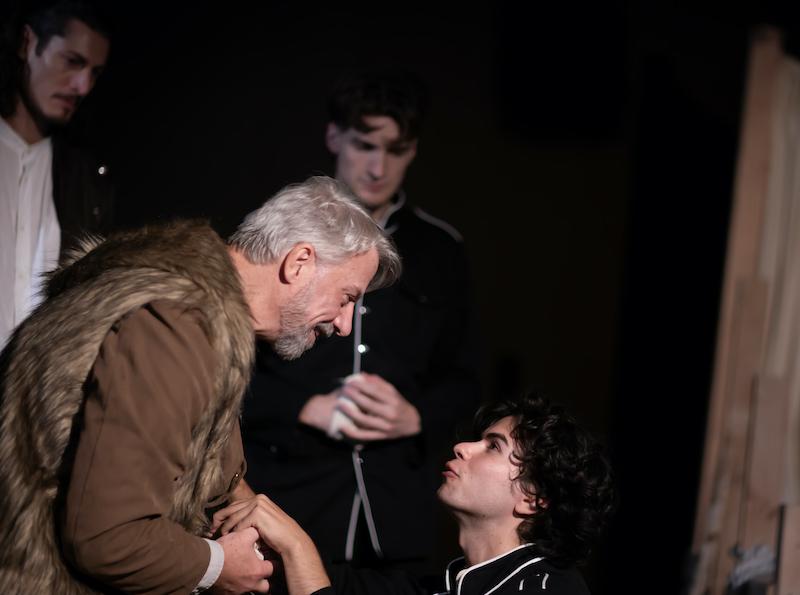

The Mutt, after Dostoevsky’s The Brothers Karamazov, directed by Elena Che and Anoushka Nesterova, at IATI Theater.
The dog spits out the poisoned bread, but Kolya Krasotkin (Benjamin Nowak) — the charismatic yet self-absorbed leader of the boys — keeps her for a month as proof of his training skills.
His vanity is ruthless: a boy intent on dazzling while his friend is dying. Ego overshadows empathy, until Alyosha confronts him and points to another path.
In The Mutt, no character is free of shadow; each wrestles with their own fractured soul.
Smurov struggles to break free of Kolya’s influence. Ilyusha is crushed by guilt and shame. Kolya is magnetic but insufferable, a boy whose charisma masks a deep need to dominate.
And even Alyosha, leaving the monastery for the world beyond, must confront his own temptations. No one can deliver him from evil — not even God; the battle is his alone.
The production closes with a moment of prayer so intimate it feels as though the audience has stumbled into something private — Alyosha’s chant answered by the boys in a solemn church hymn.
A white kite drifts across the stage, a haunting symbol of Ilyusha’s soul, and a fragile hope of redemption through forgiveness.
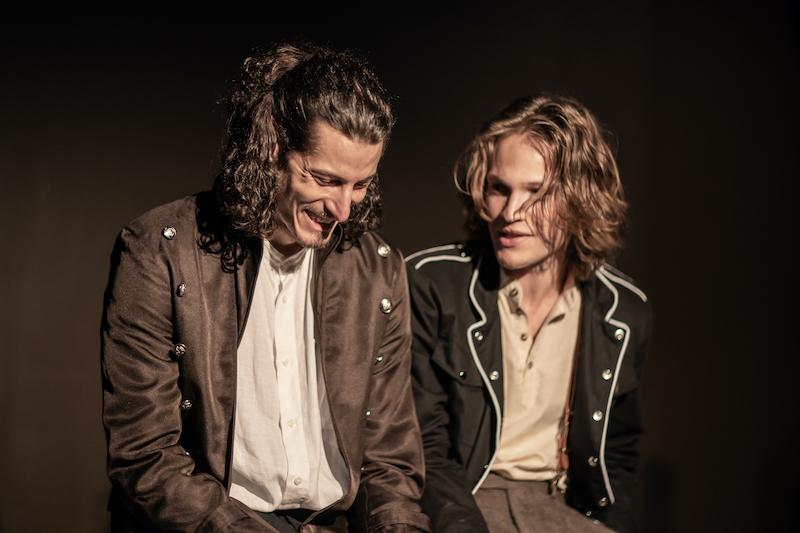

The Mutt, after Dostoevsky’s The Brothers Karamazov, directed by Elena Che and Anoushka Nesterova, at IATI Theater.
Ancient Slavonic chants, fractured storytelling, and a distinctive movement language developed by Argentina-born choreographer Gisela Quinteros make the production feel both innovative and alive.
The result is less a play than an immersive encounter with Dostoevsky’s central question: what it means to be human.
This post was written by the author in their personal capacity.The opinions expressed in this article are the author’s own and do not reflect the view of The Theatre Times, their staff or collaborators.
This post was written by Victoria Zavyalova.
The views expressed here belong to the author and do not necessarily reflect our views and opinions.





![19th Sep: Anpanman: Star-Spirited Dollie (2006), 51m [TV-Y7] (6/10)](https://occ-0-1731-999.1.nflxso.net/dnm/api/v6/Qs00mKCpRvrkl3HZAN5KwEL1kpE/AAAABdeHzRNOgNBMATXqW1lByA0Yt0UQo7YjZGFpO8GRzJsXm3-_M46ntJz8eq_8_brakpX4wzZu9W3Qdi0Xvgt8wlxF8xrlo0g7Z_oZe__ojkQJ0KZxDyAz8Rug3G-LjgB3ycBzij7b0K2Sx6HSKaYWib-6-voUJYgKmGJeTsEfA62p_Q.jpg?r=1a9)





